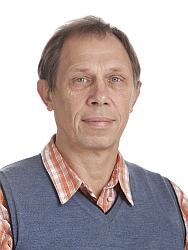Doctor Vsevolod Shneer, Heriot-Watt University, Edinburgh


We will consider a range of models motivated by various protocols for transmitting messages in wireless communication networks. Among these protocols and the well-known MaxWeight, alpha-fair, CSMA and others. We will consider questions of stability and throughput achieved by networks governed by these protocols.
Seva Shneer is an Associate Professor at the Department of Actuarial Mathematics and Statistics at Heriot-Watt University, Edinburgh, UK. Seva received his PhD in probability from Heriot-Watt University in 2006 and later held a postdoctoral position at EURANDOM, Eindhoven University of Technology. He then worked as a senior research fellow at EPFL, Lausanne, Switzerland, before joining Heriot-Watt University as Assistant Professor in 2010. Seva's main research interests are in stability and performance analysis of stochastic networks, especially those appearing in queueing theory, communication networks, data centres and energy applications.




